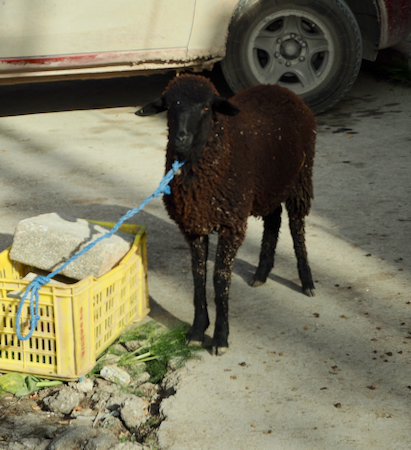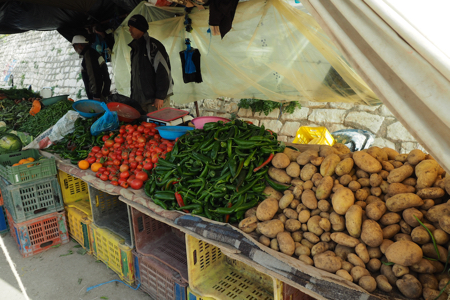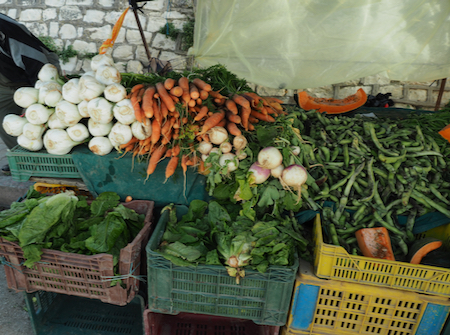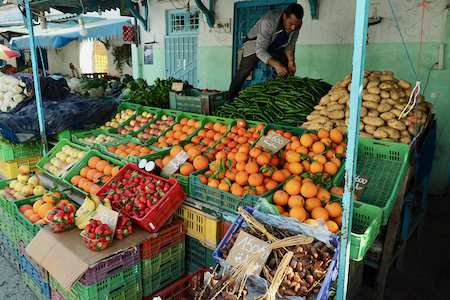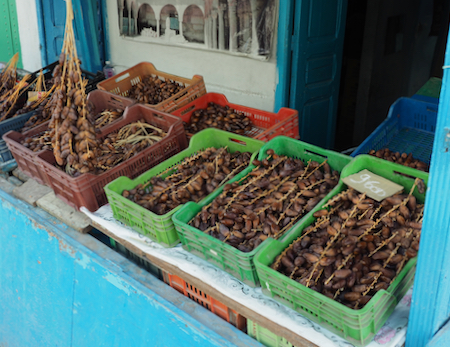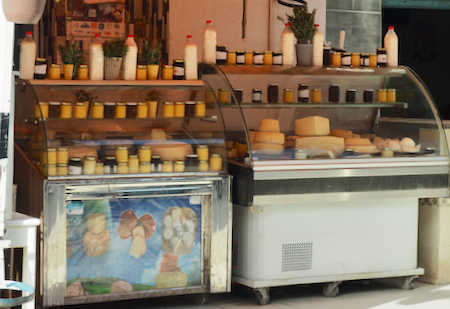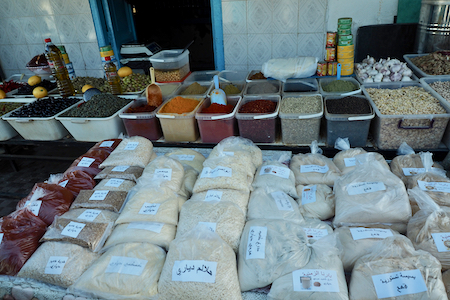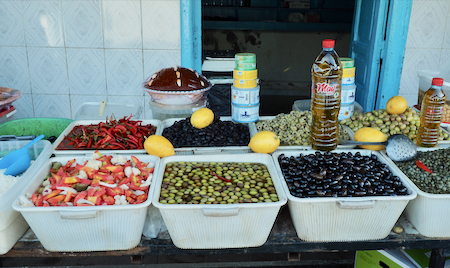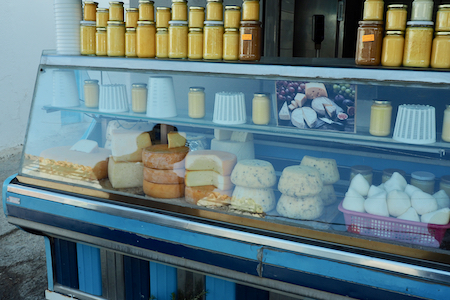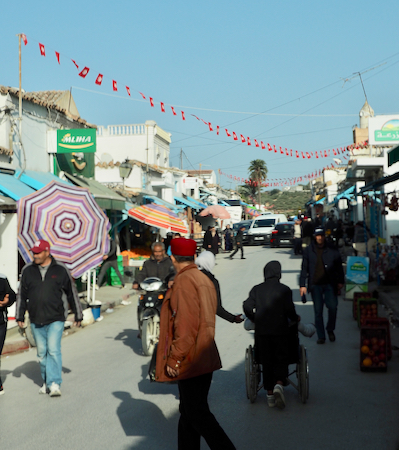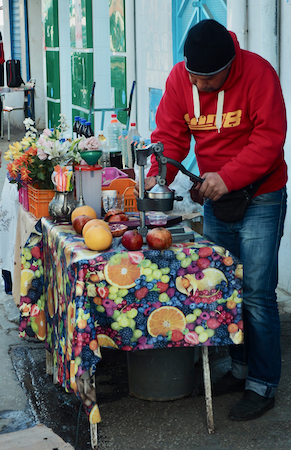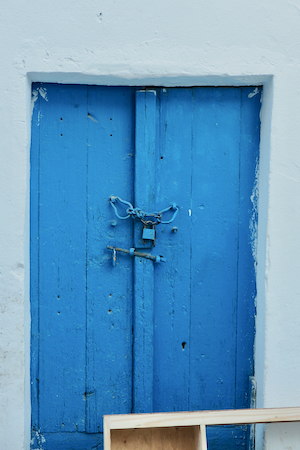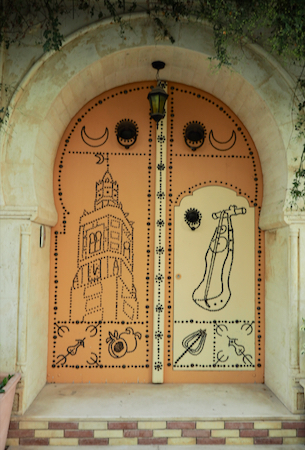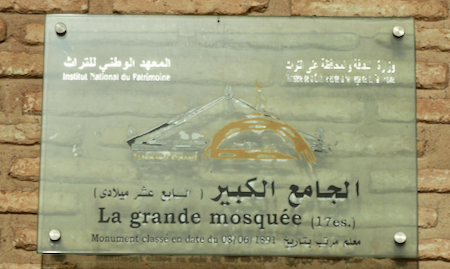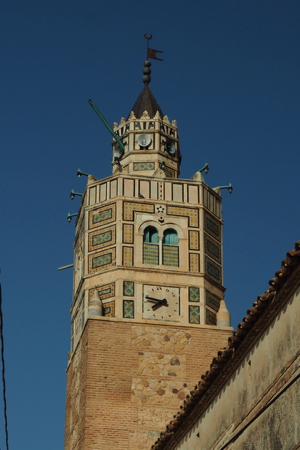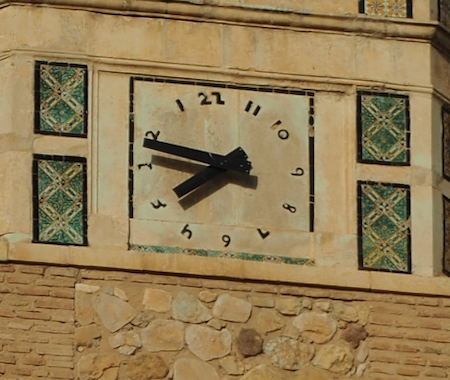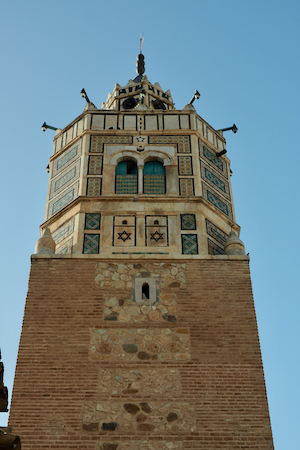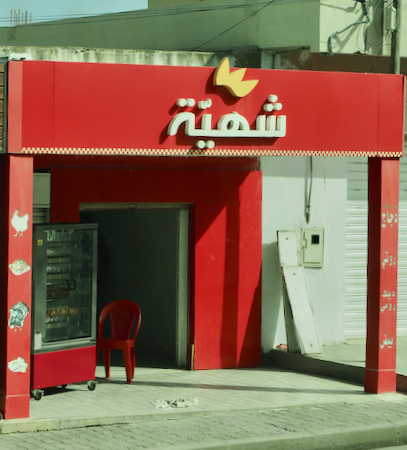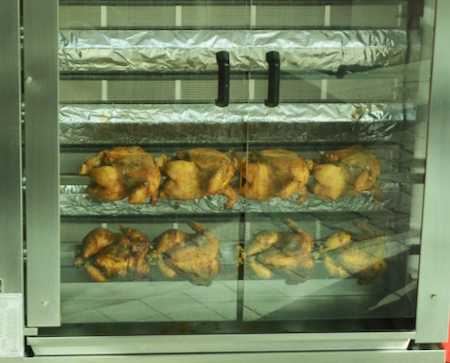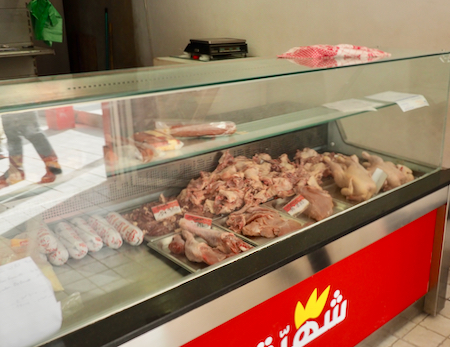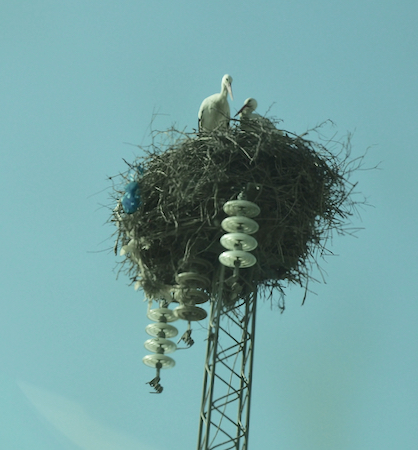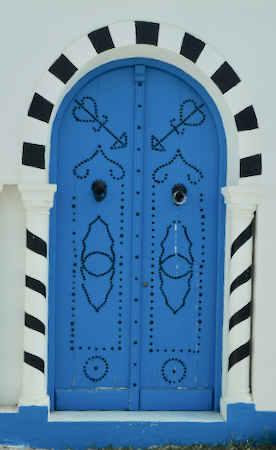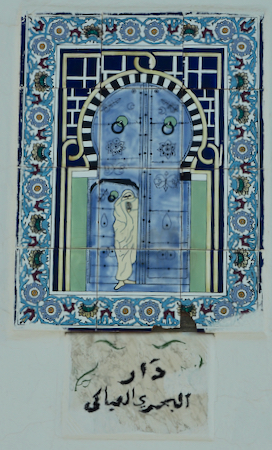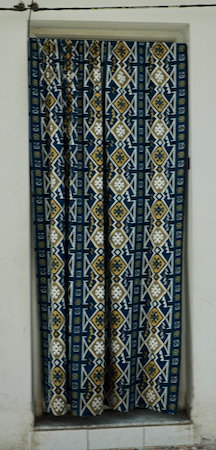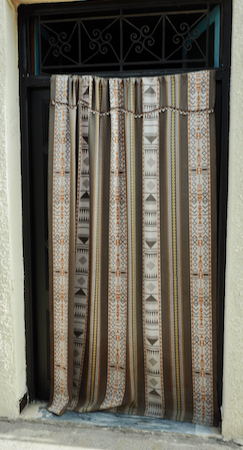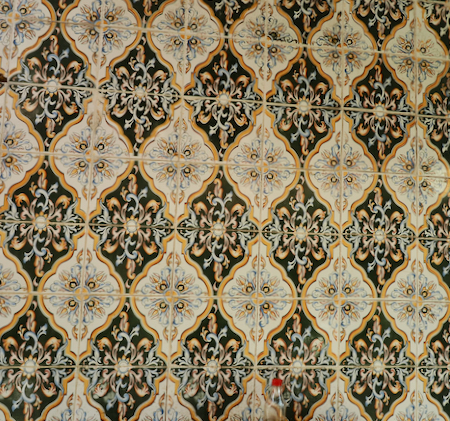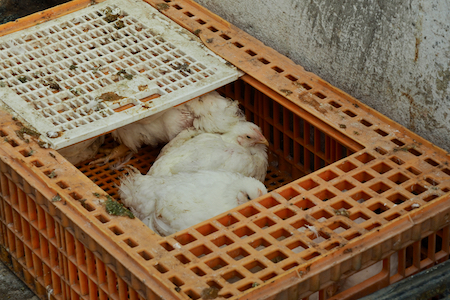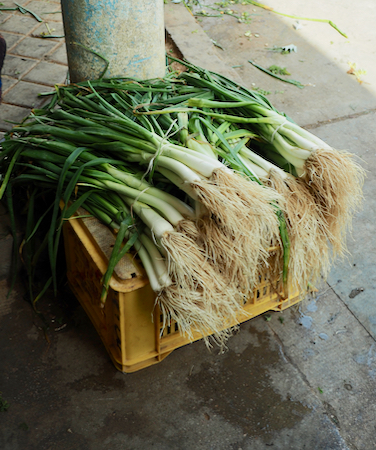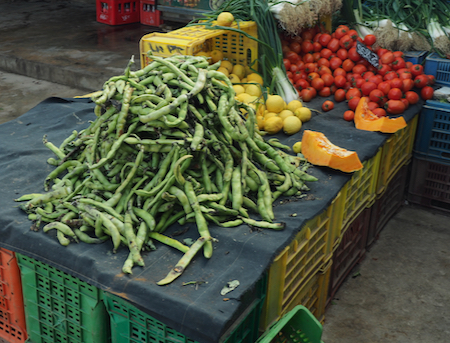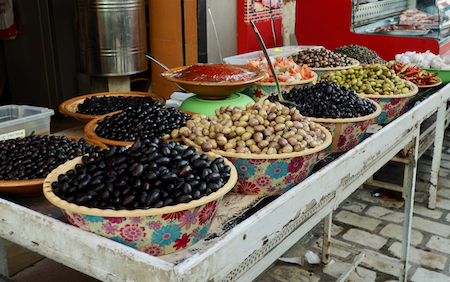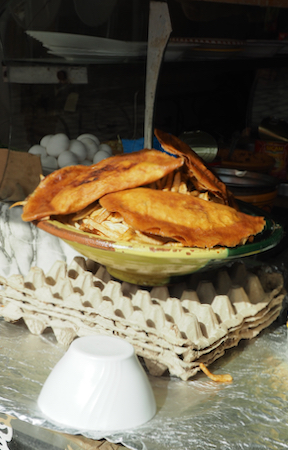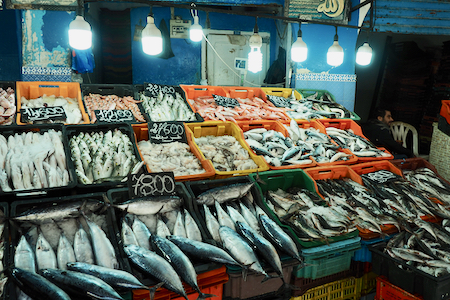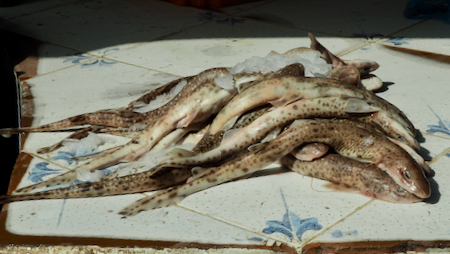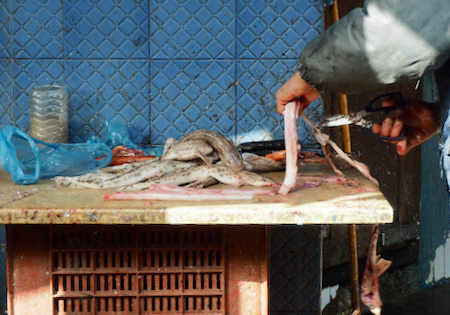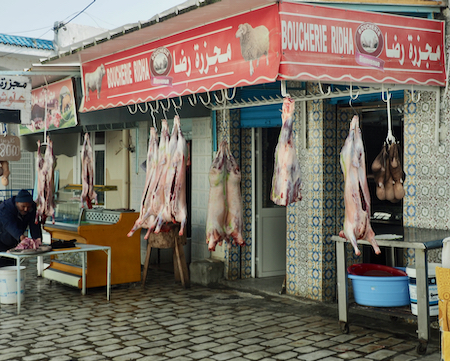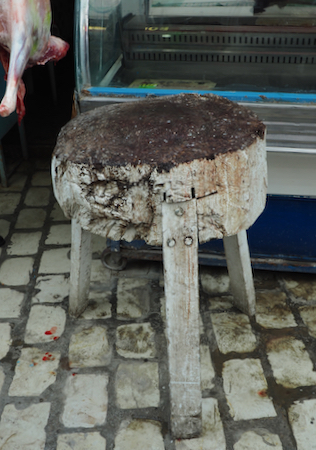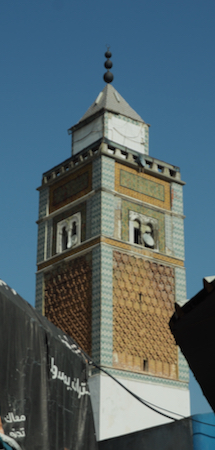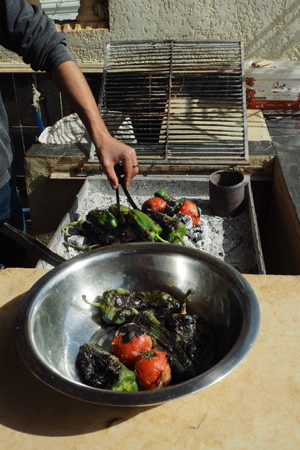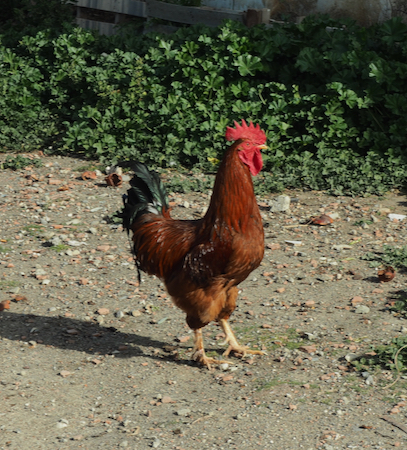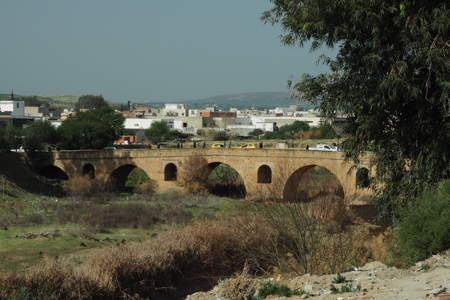After the wonderful adventure at Dougga, we went to lunch and ate wild boar with starters, veggies, and couscous. The meat was delicious and tasted like tender pot roast.
On the way back to Tunis we stopped in Testour, an Andalusian city, located on the hillside of the Medjerda Valley. People (Moslems and Jews) moved here from Spain in the 1600s. We walked through their market street and looked at the cheese and pomegranates that Testour is famous for. In October they celebrate a pomegranate festival.
Dates
Cheese and honey
Cheeses
Street scene
Squeezing pomegranate juice
The town's mosque has an unusual minaret with a clock that works backwards - 1, 2, 3, are on the upper left of the clock face and 9, 10, and 11 are on the upper right. There are stars of David on another face of the tower because the Jews in the community helped to build the mosque. Under the crescent at the top are three balls that stand for religions. Top and first was Judaism, then Christianity developed, and then Islam. Interesting. When there are five balls on a minaret, they represent the five pillars of the Islamic faith.
The backwards clock
On one side of the minaret are two Stars of David that are an acknowledgement of the Jewish community who, like the Muslims, were also forced to flee Andalusia and are said to have helped in the construction of the mosque.
Thurs., 2/23/23 - Medjez-el-Bab
Today the group visited a farm in Medjez-el-Bab (means “door half open”). This family farm is owned by a retired tour guide, his wife is an engineer, and there are three sons - one in Dubai, one moving to Canada, and one a senior in high school. All speak English very well.
The farm produces olives and pomegranates and has chickens and two horses. There was no farm activity and the green house was empty because water use is restricted because of insufficient rain.On the way to the farm, we went to the town market, bought slices of turkey for our lunch and then sat and did nothing until we ate. Three people got to make Fatima fingers (like “brick” but rolled up), and two got to peel peppers and tomatoes that were to be grilled. Bread was brought out and we were to tear off pieces and dip it in their olive oil. All this was done with no one washing hands and people actually bit into bread and re-dipped the bread in the common plate of oil. No thank you.
Market where we stopped to pick up meat for lunch
In the roaster
Counter display
Stork nest with occupants
Another lovely blue door
Tile-work
A very pretty doorway hanging
Another nice example
Lots of beautiful tile in the area
Someone's dinner?
Olives
Whatever they are, they look tasty.
Cutting up the fish
Butcher shop
Well-used butcher block!
Grande Mosque
Lunch
King of the Roost?
The town of Medjez-el-Bab has an original Roman arched bridge over a river, with no water, that arises in the mountains in Algeria. Algeria built three dams on the river so the river is dry here in Tunisia.
The Medjez-el-Bab bridge was involved in the Tunisian actions during WWII. (See this link for a photo of the damaged bridge that was made usable by installing a Bailey Bridge.)
Medjez-el-Bab bridge
| Return to Top | Return to Itinerary | Return to Trips page to view other trips | Return to Dreamcatcher Home Page |
